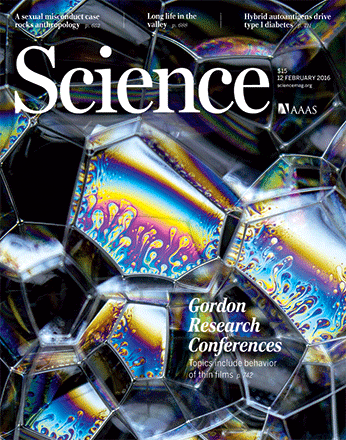"Climate Confusion Among U.S. Teachers" (PDF), a paper in the journal Science describing the first nationwide survey of climate change education in the United States, conceived and funded by NCSE and conducted in collaboration with researchers at Pennsylvania State University, received extensive coverage in the press. Here is a sampling.
Describing the study as providing "new evidence on the source of the confusion and denial surrounding global warming in American public life," the Guardian (February 11, 2016) observed that "Nearly two-thirds of schoolchildren in the US are taught lessons on climate change that do not rise to the level of a sound science education."
Newsweek (February 11, 2016) explained that the survey found that climate change is taught: "Only 3 to 4 percent of students receive no teaching on the subject. The sort-of good news ends there, because what those who are taught about climate change receive — and the amount they receive — is shaky at best."
Writing for the Washington Post (February 11, 2016), Chris Mooney summarized, "a majority [of U.S. science teachers] are teaching about climate change in their classrooms — but a significant percentage are also including incorrect ideas, such as the notion that today's warming of the globe is a 'natural' process."
Mother Jones (February 11, 2016) was particularly concerned that "most teachers are unaware of how many scientists agree that climate change is mostly caused by humans. Only 30 percent of middle school teachers and 45 percent of high school teachers agreed that the consensus was in the range of 81 to 100 percent. (It's about 97 percent.)"
The paper's lead author Eric Plutzer told InsideClimate News (February 11, 2016), "Many of them personally believe the burning of fossil fuels is causing warming, but are not aware that view is shared by climate scientists. That lack of awareness surely contributes to the willingness to [entertain] alternatives and non-scientific views in their classrooms."
Time (February 11, 2016) emphasized that, according to the study, "[c]onservative political identity was the strongest indicator that a teacher would suggest that climate change may be rooted in natural rather than human causes," although "a lack [of] formal education on climate change among teachers" is also a factor.
The New York Times (February 11, 2016) quoted Miami science teacher Bertha Vazquez, who incorporates climate change in all of her courses, as confirming that the pressure on teachers is real. "Every year, I get the email from a father who says, 'This is garbage,' and [asks] why am I teaching this?" She added, "It's no fun to field those phone calls."
NCSE's Minda Berbeco told Think Progress (February 12, 2016) that it was important not to blame teachers. "That was really not our goal at all by doing this survey. Teachers are in a really tough position. Our purpose was not to target or attack, but to figure out what's going on, and figure out next steps to help them to teach the good stuff."
The survey even caught the attention of the satirical newspaper The Onion (February 15, 2016), which purported to ask ordinary citizens for their reaction to the survey. The favorite response among NCSE's staff: "It's so hard for teachers to know what's right, what with the overwhelming abundance of scientists saying the exact same thing."
In New Scientist (February 11, 2016), Michael Mann concluded, "Our children will bear the brunt of the climate crisis, battling coastal inundation, the damage done by more extreme weather, increasingly withering droughts and devastating floods. We owe it to them not only to give them the facts, but to help them begin to clean up the mess that we created."
Similarly, Sander van der Linden, Edward Maibach, and Anthony Leiserowitz wrote in US News & World Report (February 18, 2016), "American children are currently being presented with a false debate. This needs to end: We urge secondary school science teachers to set the record straight by educating their students about the overwhelming degree of scientific consensus on human-caused climate change."
Written by Eric Plutzer, Mark McCaffrey, A. Lee Hannah, Joshua Rosenau, Minda Berbeco, and Ann H. Reid, the article is "Climate Confusion Among U.S. Teachers," appearing in Science 351 (6274):665-666. Further articles explaining the survey and its results are scheduled to appear in various venues.
Updated February 18, 2016, by the addition of the penultimate paragraph.

